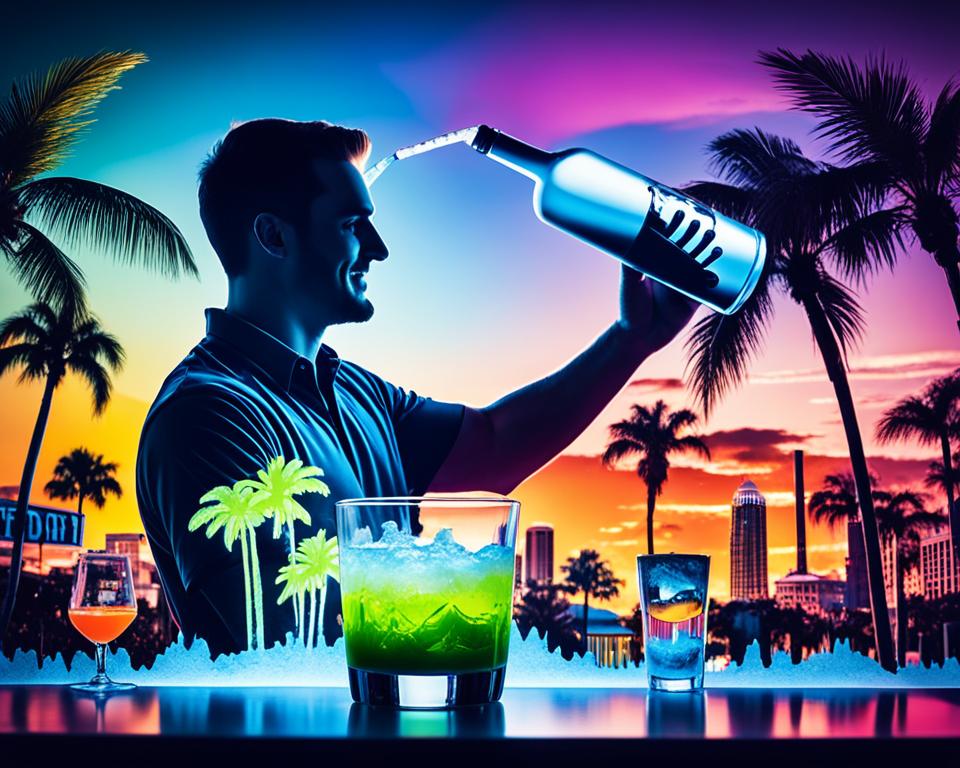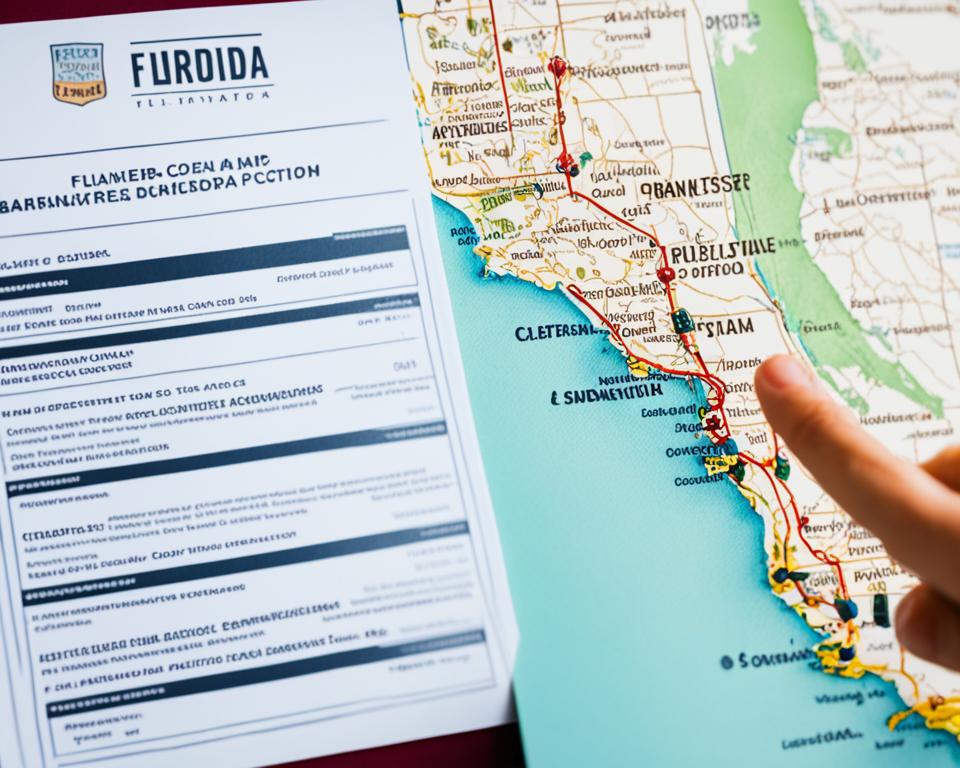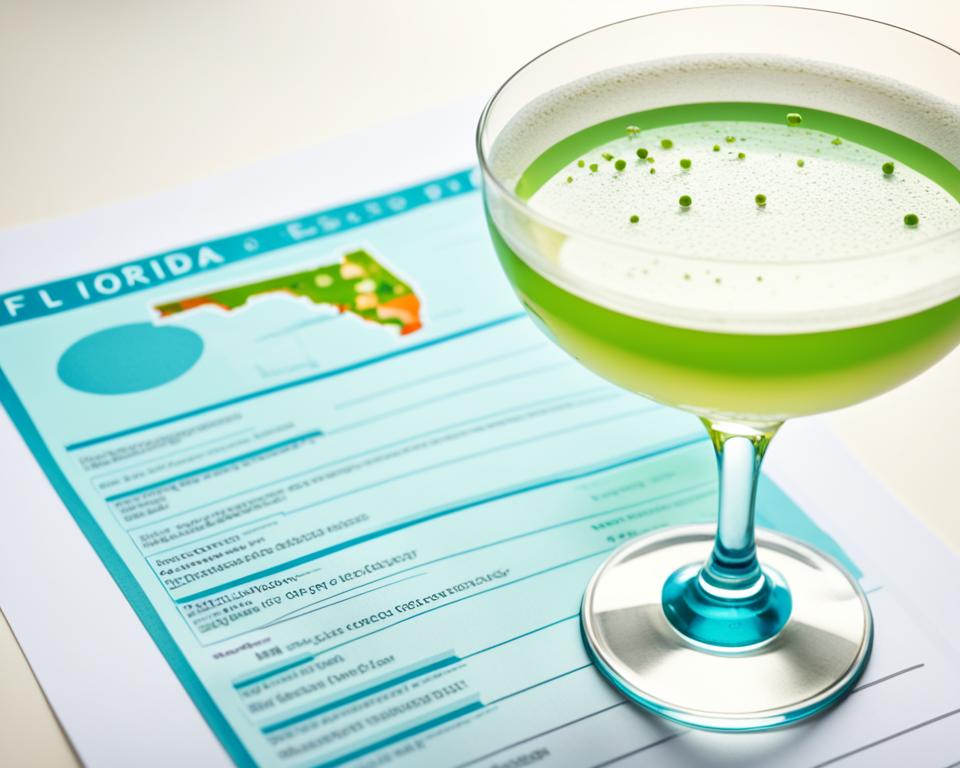Have you ever wondered if you really need a bartender license to serve alcohol in Florida? It’s a question that might surprise you with its implications, especially if you’re thinking of pouring drinks in the Sunshine State.
The intriguing part is, while Florida does not mandate alcohol service training, there are notable benefits to voluntarily participating in the Florida Responsible Vendor Program. So, what’s all the buzz about? To legally serve alcohol in Florida, one must navigate a maze of requirements. But, contrary to what many believe, bartending in Florida can be pursued without a compulsory bartending license. However, here’s the catch: the right certification can significantly bolster your career.
Many bartenders opt to obtain their bartender certification FL through providers like Serving Alcohol, which has been around since 1985. They equip their trainees with the Florida Responsible Vendor Bartender certification program, providing them with a competitive edge.
Employers highly value this type of Florida bartender permits as it not only ensures compliance with state laws but also implies a level of professionalism and dedication. It’s especially beneficial in certain establishments who must train their newly hired staff on the state’s alcohol laws within 30 days.
Ultimately, while a bartender license in Florida isn’t a legal necessity, it can be a game-changer for your career. So, is it worth investing in a Bartending license FL and Florida bartender permits? Stick with us to uncover why it just might be.
Understanding Florida Liquor Laws for Bartenders
Navigating the complexities of Florida liquor laws is crucial for anyone looking to enter the bartending profession in the state. Florida requires individuals to be at least 18 years old to legally serve alcohol, although there are further distinctions for certain activities.
Age Requirements for Bartending
In Florida, you can serve alcohol at 18, but pouring and mixing drinks require you to be 21. These rules ensure that those handling alcohol possess a level of maturity fitting the responsibility.

Statute 562.13 outlines additional age-related restrictions, such as limits for employment as a bartender or manager in establishments that primarily serve alcohol. Stricter age requirements apply if you’re selling packaged liquor, setting the bar at 21.
Legal Implications of Serving Alcohol
Ensuring legal compliance when serving alcohol is non-negotiable. Operating without a license or failing to follow bar service legal requirements can result in fines, penalties, and other serious legal consequences. Many Florida establishments, including bars, restaurants, and clubs, mandate that bartenders hold a valid license.
Training programs cover essential skills like mixology and responsible service. Licenses are overseen by the Florida Division Of Alcoholic Beverages and Tobacco (DABT), requiring completion of a state-approved course and exam.
Florida Responsible Vendor Program
The Florida Responsible Vendor Program offers significant advantages, even though not mandatory. Establishments participating in this program receive critical training and potential liability protection. While Florida doesn’t require a specific bartending license, formal training through certified programs is highly preferred, giving aspiring bartenders a competitive edge.
Through the Florida Responsible Vendor Program, you’re not only showing your commitment to responsible alcohol service but also enhancing your professional credibility. Training initiatives help you navigate the competitive Miami bartending scene by preparing you with essential knowledge and skills.
Remember, understanding Florida liquor laws for bartenders is key, whether you’re aiming to serve or mix drinks. It showcases your dedication to the craft and assures employers of your readiness to uphold the law and serve responsibly.
Bartender License Requirements in Florida
So, you’re considering becoming a bartender in Florida and wondering about the licensing requirements? It’s an excellent choice as this fast-paced career can be incredibly rewarding. Let’s dive right into what you need to know.
Is It Mandatory to Get a Bartending License?
No, it isn’t mandatory to obtain a bartending license to serve alcohol in Florida. However, many employers do prefer candidates who have completed some form of bartender training in Florida. This is because a licensed bartender possesses a higher level of knowledge and expertise, which can be a significant advantage in such a competitive field.
According to the Division of Alcoholic Beverages and Tobacco, anyone serving alcoholic beverages, whether a pro bartender or a volunteer, must have an alcohol service certification. This requirement underscores the importance of understanding responsible alcohol service and the skills that come with it, even though having a license is not a strict mandate.

Benefits of Getting Certified
While it’s not compulsory, getting a bartender license via courses like the State Licensed Bartending Course offers several benefits. Firstly, it only costs $495 and typically takes about 40 hours to complete, which is a small investment considering the potential returns. Bartender training in Florida provides invaluable knowledge, covering topics like responsible alcohol service and preventing drunk driving.
High-volume establishments in South Florida, including luxury hotels and upscale restaurants, are where you can really maximize your earnings, sometimes making $25 to $40 per hour at events. Those working in prestigious venues could even see six-figure incomes, thanks to lucrative tips.
Moreover, acquiring a license can significantly distinguish you from other job applicants, showing potential employers that you’re committed to delivering responsible and high-quality service. It enhances your marketability and opens doors to higher-paying jobs in high-end establishments. Ultimately, understanding how to get a bartender license in Florida can be a game-changer for your career.
How to Get a Bartender License in Florida
Are you wondering how to get a bartender license in Florida? It starts with choosing the right program that matches your needs. There are various options available, each with its own set of benefits.
Steps to Enrollment
First, find a recognized program like the State Licensed Bartending Course or Serving Alcohol. To enroll, you typically need to provide basic personal information and sometimes meet age requirements. The State Licensed Bartending Course usually takes 40 hours to complete.
Online vs. In-Person Training Options
When deciding between online vs. in-person training options, consider your schedule and learning style. Online certifications offer flexibility and are often self-paced, making them ideal for busy individuals. On the other hand, in-person courses provide hands-on experience and real-time interactions. Local Bartending School, for example, offers both online education and classroom sessions in numerous locations across Florida, including Miami and Orlando.
Cost of Training Programs
The cost of training programs varies. The State Licensed Bartending Course costs around $495, while online programs like those from ServeSmart can be more budget-friendly. Despite the higher price, the comprehensive curriculum and practical experience provided in courses like the State Licensed Bartending Course can be well worth the investment. Plus, bartenders in high-volume establishments in South Florida can earn between $25 to $40 per hour, not counting tips, making the cost of certification a smart investment.
Understanding how to get a bartender license in Florida and weighing online vs. in-person training options will set you on the path to a successful bartending career. Whether you’re aiming for a high-volume nightclub in Miami or a fine dining restaurant in Naples, getting certified can significantly boost your prospects.
Florida Bartender Certification Programs
Are you considering becoming a certified bartender in the Sunshine State? There are several Florida Bartender Certification Programs you can choose from to get started. Let’s take a closer look at some notable certification programs, the structure of their courses, and the time you’ll need to invest to achieve certification.
Popular Certification Programs
Florida offers a range of certification programs tailored to meet different needs and preferences. For instance, Local Bartending School (LBS) provides versatile options like online courses, in-class training, and even one-on-one mixology sessions. Other reputable programs include TIPS and ServSafe, which focus on Responsible Vendor Training to ensure you understand alcohol service laws and customer safety.
Course Content and Structure
These programs cover essential topics that every bartender should know. You’ll learn about Florida’s specific liquor laws, how alcohol affects the body, and techniques for handling intoxicated patrons. Programs like LBS often feature interactive modules, hands-on practice, and final examinations to test your knowledge and skills, ensuring you meet Florida’s standards for bartending excellence.
Time Required for Certification
The time commitment can vary based on the type of training you choose. Online courses might be completed in as little as 3 hours, while in-person classes can stretch out over several weeks. For example, the State Licensed Bartending Course typically takes around 40 hours to complete. No matter which route you take, investing this time is worthwhile for mastering the art and legality of bartending.
Legal Responsibilities of Florida Bartenders
As a bartender in Florida, understanding the legal responsibilities of Florida bartenders is crucial for both personal and professional success. Adhering to the correct protocols can save you from legal troubles and ensure a safe environment for your patrons. One of the fundamental requirements is that you must be at least 18 years old to serve alcohol. This aligns with state regulations to maintain responsible service.
Employers are obligated to train newly hired staff within 30 days on the state’s alcohol laws. This is where obtaining a Florida Responsible Alcohol Vendor Certificate becomes not just beneficial but essential. The certification program serves to familiarize bartenders with their legal responsibilities, including identifying and managing intoxicated guests and understanding the effects of alcohol on the body. This holistic training aims to foster a safer service culture.
It’s also critical to recognize the legal drinking age in Florida, which is 21 years old, to prevent the severe consequences of serving alcohol to minors. Consequences like fines, community service, and even driver’s license suspension add significant gravity to these responsibilities. Bartenders in Florida must renew their certification every three years to keep their knowledge and skills current, ensuring ongoing compliance with the latest laws.
Effective alcohol service is more than just pouring drinks; it involves recognizing when a guest has had too much. Understanding these signals not only safeguards the patrons but also shields you from potential legal ramifications. Certification programs often include training on identifying intoxication, enhancing your ability to make informed, legally-compliant decisions during service hours.
To sum it up, whether you’re working in high-volume establishments or upscale nightclubs, knowing the legal responsibilities of Florida bartenders is a non-negotiable aspect of the profession. Being equipped with a Florida Responsible Alcohol Vendor Certificate not only supports your career but ensures that you’re providing a safe and enjoyable experience for everyone involved.
Financial Prospects: How Much Can You Earn?
Bartending in Florida offers a wide range of financial opportunities. From tips to additional compensation, various factors influence a bartender’s earnings.
Factors Influencing Earnings
The main factors that impact the bartender earning potential Florida include the type and location of the venue, the bartender’s experience, and the clientele. Upscale venues typically offer higher pay, while bartenders who work in high-traffic areas have a greater chance of earning more.
Tips and Additional Compensation
One of the most significant sources of income for bartenders is tips. On slow nights in mid-range bars, bartenders can make around $40 per shift in tips. However, this amount can skyrocket to between $200 and $500 on busier nights. In upscale settings, bartenders can earn between $100 to $1000 per shift in tips alone. It’s clear that tips and additional compensation can considerably boost overall earnings.
High-Earning Bartending Positions
Bartenders aiming for top-tier earnings should look for positions at luxury hotels, high-end restaurants, and trendy bars. These venues not only offer the chance to earn higher tips but also provide additional compensation like bonuses and profit-sharing, enhancing the overall bartender earning potential Florida.
Do You Need A Bartender Room License In Florida?
It’s natural to wonder, do you need a bartender license in Florida? According to the Division of Alcoholic Beverages and Tobacco (ABT) in Florida, the state doesn’t mandate bartenders to have a license. However, being at least 18 and independent is essential. While you can start right away without certification, obtaining one has perks.
The certification course for bartending in Florida can be completed in as little as seven days. Local Bartending School (LBS) offers various training methods: online, in-class, and in-person. Florida, being the 4th most populous and 8th most densely populated state in the U.S., boasts a thriving bartending scene, especially in large cities like Miami, Fort Lauderdale, Orlando, and Tampa.
With Florida attracting numerous tourists, skilled bartenders are in high demand. Flexible schedules and the potential for lucrative earnings make certification more appealing. For instance, bars in Florida like Icebar Orlando, The Dive Bar in Fort Lauderdale, and No Name Pub in Big Pine Key are bustling venues requiring proficient bartending skills.
Even without a mandatory requirement, why would anyone ask, “do you need a bartender license in Florida”? The answer lies in the advantages it brings. Certified bartenders are better prepared to handle the responsibilities and legalities of serving alcohol, leading to increased job opportunities and potentially higher earnings. A grasp of legal responsibilities, like the prohibition of drinking on duty, ensures compliance with regulations, safeguarding both the bartender and the establishment.
In conclusion, while you might not legally need a bartender license in Florida, certification can undoubtedly benefit your career. It enhances your skills, boosts your job prospects, and ensures you’re well-versed in the state’s guidelines.
Is a Liquor License Required If You Have a Bartender License in Florida?
In Florida, possessing a bartender license does not exempt you from needing a liquor license to sell or serve alcohol. Businesses must still secure the appropriate licenses to operate legally. For those in Tampa, it’s essential to research the liquor license cost tampa florida to ensure proper budgeting and compliance.
Conclusion
As we’ve explored, diving into a bartending career in Florida offers numerous avenues for success, characterized by both challenges and rewards. Obtaining a bartending license is a critical step for those aspiring to excel in this field. The licenses vary, with a Class 2 for beer and wine and a Class 1 for all alcoholic beverages, each requiring a state-approved training course that delves into responsible alcohol service and the prevention of drunk driving.
Adhering to state and local regulations is a must, making the process of getting certified not just a formality but a gateway to better job prospects and enhanced safety standards. The $495 investment for the comprehensive State Licensed Bartending Course, which typically spans 40 hours, equips you with vital knowledge and positions you to potentially earn $25 to $40 an hour, with tips sometimes pushing your earnings up to $90 an hour in high-volume or upscale establishments.
For those eyeing premium locations like Miami, where bartenders can command higher wages and receive generous tips, understanding Florida’s unique regulatory landscape becomes even more critical. Remember, employers are mandated to ensure you understand Florida’s alcohol laws within the first 30 days of employment, adding another layer of compliance. Embrace these regulations and training requirements—they’re designed to set you up for a successful and lucrative bartending career in Florida, distinguishing you as a professional in the field.

